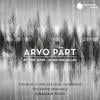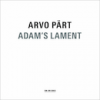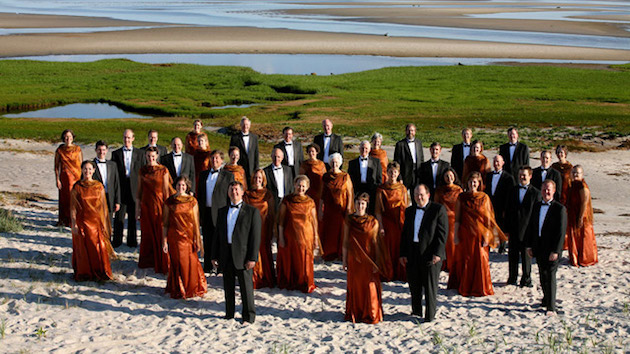
Solemnity. Silence. Spiritual immersion. Spatial dimension. Centuries-old styles.
Tags for the Estonian composer Arvo Pärt, 84, come easily to mind — perhaps too easily. Listeners may think they know what they’re in for before they’ve actually listened.
In a substantial and gratifying recording by the Massachusetts ensemble Gloriae dei Cantores, it’s the variety of Pärt’s expressive powers over many decades, not the sameness, that shines through in six sacred works. From plainsong-like purity to multivoiced clusters that float entrancingly into and out of dissonance, the composer’s affinity for the human voice covers the spectrum. The writing for string instruments is wonderfully diverse as well, with surges of 19th-century lyricism set off by patient minimalism and perky pizzicato gambits.
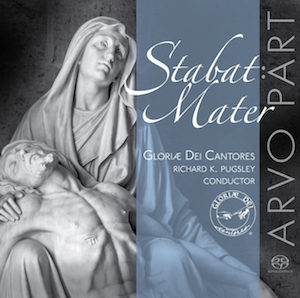 Titled Stabat Mater, for the single longest work on the program, the Naxos disc showcases both virtuosic solo singing and ensemble cohesion. The whole is the sum and then some of its excellent constituent parts. Richard K. Pugsley conducts with clarity, sensitivity, and an instinct for high-impact moments.
Titled Stabat Mater, for the single longest work on the program, the Naxos disc showcases both virtuosic solo singing and ensemble cohesion. The whole is the sum and then some of its excellent constituent parts. Richard K. Pugsley conducts with clarity, sensitivity, and an instinct for high-impact moments.
Right from the top of the recording, in the brief Peace Upon You, Jerusalem, Pärt’s gift for animating a text bears rich fruit. Sopranos Rachel McKendree and Sr. Armanda Ortoloni, ethereal yet urgent, sing the answering voices in this Psalm 122 celebration of a temple pilgrimage. Echo effects, an oscillating decrescendo and a loftily sustained high note are like dramatic lighting effects illuminating the mighty chord clusters mounted by the chorus.
Another short work, the 2001 Nunc dimittis, opens with male voices, the low registers soon gently pierced by Ortoloni’s soprano. Together they create a slowly rising tide of multivoiced chords, which finally erupts in an exultant outburst. Later, as if the waters were restabilizing, the men anchor a tonic chord.
High and low voices commune in the acapella Magnificat of 1989. The women, keyed by McKendree’s soprano, billow out drifting clouds of labile harmonies. The men, emerge from underneath these celestial wanderings in a composition that feel at once capacious and tightly wrought.
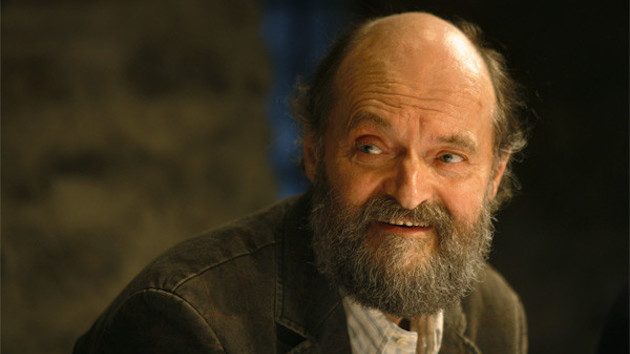
Pärt’s masterly Stabat Mater deploys 20 stanzas and orchestral interludes over a 25-minute running time. The work opens with a gorgeous string prelude of parallel descents. That lays the groundwork for first one and then a second intense vocal exclamation. The instruments and voices remain in vital conversation throughout, with melodic motifs recurring in new guises. The strings caper and keen. Tempos hasten as nowhere else on the recording. Vocal clusters build and dissolve. It all feels yoked to a driving purpose, at once fervent and consoling.
Not everything pays off so handsomely. Pärt can feel precious at times. L’abbé Agathon has its share of deliberate lumbering before its narrative invention takes hold. The story involves the desert dialogue of an abbot and a leper. The setting gradually takes on an operatic complexity, with recitative, arresting choral commentary, and shimmering string chords.
The performances throughout radiate conviction and urgency, a sense of belief in every phrase that’s sung or played. While there’s no shortage of Pärt recordings, initiates and novices to his will find an ample, wide-ranging, and rewarding selection of his absorbing music here.


